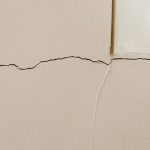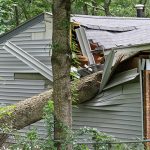What is Considered Property Damage?
Property damage is damage or injury done to anything that can be owned. Property damage can be applied to a place of residence, mode of transportation, pet, prized possessions, plants, tools, etc.
Damage to personal property can result from natural disasters, accidents, and other’s actions. When it comes to getting the money you need to restore your possessions, specifying the cause of damage is critical. Being able to evaluate the monetary value of the damage properly is equally important.
Homeowners Insurance
Homeowners insurance is one of the most difficult types of insurance claims to file. The insurance that protects the average home is broad in the scope of things it covers and narrow as to how they are covered.
For example, your homeowner’s insurance covers most damage resulting from sudden accidents or disasters. Things such as storm damage, kitchen fires, or even liability coverage for someone not in the home are typically covered.
Homeowner’s insurance doesn’t cover many things one would intuitively believe it should. Some examples are flooding, sewage backup, mold, and earthquakes. These things may seem ordinary enough, but insurance agencies will not typically cover these claims if filed by the policyholder.
Suppose you are evaluating the cost of damage to repair or rebuild your home. In that case, your insurance company will send an agent to assess the damage to the physical structure of your home and the possessions in it. It is the agent’s responsibility to determine how much money you deserve.
Homes are expensive, so getting the value out of your insurance policy is imperative for long-term financial success.
Renters Insurance
If you don’t own the place you are renting, chances are the landlord has required you to purchase insurance. Renters insurance covers the value of your personal belongings and does not apply to the property you are renting.
Getting value from a renters insurance claim depends on how your property was damaged or destroyed and what is in your policy.
Renters’ insurance covers a similar range of instances as homeowner’s insurance. You may elect to cover your valuable belongings, such as jewelry and fine art, with your coverage. You may also choose to protect your belongings against theft, water damage, and damage caused by earthquakes.
Car Insurance
Car insurance is another common type of insurance the average person will deal with.
The coverage you can get for your car depends on its make, model, mileage, and upkeep. Most car insurances will cover damage caused by self-inflicted damage not involving other motorists, damage done by you to another vehicle/motorist, and medical injuries resulting from an accident where the policyholder is responsible.
It is necessary to properly assess the value of the car and the estimated cost of repairs. Your insurance company will compare this to the fair market cost of a similar vehicle. If the damage is too extensive, your insurance will typically pay you the estimated value of your vehicle so that you can put that money towards a new one.
Flood Insurance
If you live in an area with a history of flooding in the last hundred years, you will want to purchase flood insurance.
The most unsuspecting areas can be at risk for flooding. Those who live on the mountain slopes of a desert may not think their home is at risk of flood damage, but deserts are prone to flash floods from unprecedented precipitation and tough, nonabsorbent soil.
Flood insurance will cover the type of water damage homeowners insurance typically won’t. Coverage typically includes your home’s frame and foundation and almost everything inside your home.
Homeowners’ insurance wouldn’t cover water damage unless it resulted from a sudden internal accident. Flooding, even if caused by something relating to plumbing, won’t be covered if the water originated from outside the home.
Criminal Property Damage
For reparations from illegal acts, property owners are almost entirely dependent on the law to receive recompense.
What falls under the umbrella of criminal property damage? You may sue for property damage when someone:
- Defaces or damages your property
- Tampers with your property, impairing its function
- Made an unwanted inscription on your property
These are all criminal acts punishable by the possibility of jail and fines.
A lawsuit for criminal property damage is not guaranteed to win in court. The accused may get off guiltless if they can convincingly prove the following:
- The act was at the permission of the property owner
- The defendant owns the property
- The damage caused was the result of an accident
- The defendant was not the perpetrator of the incident
If a lawsuit for criminal property damage is successful, the court can charge restitutions for the crime at the perpetrator’s expense. In this instance, the criminal responsible for restitution must make every effort possible to repay their debt, even if this means selling off assets or setting up a long-term payment plan.
Most homeowners’ insurance policies do not protect against property damage caused by another individual. Instances such as arson or other forms of sabotage typically must be dealt with legally. However, homeowners insurance will typically guard against theft or damage of possessions inside your home.
Getting the Real Value with Public Adjusters
When dealing with large-scale damage on your property, getting the correct value of property damage can save you future financial hardships. An undervalued adjustment can short you the money you justly deserve from your insurance policy.
When you have a significant loss, like the loss of a home to an accidental fire, a public adjuster can represent your needs as the homeowner and get you the value you deserve from your insurance policy.
The adjusters at Hudson Douglas Public Adjusters have no agenda representing your insurance company. We act as a lawyer against your insurance company, reading the fine print to ensure your insurance pays you what you deserve.
Contact us if you are trying to recover from a large property loss.




